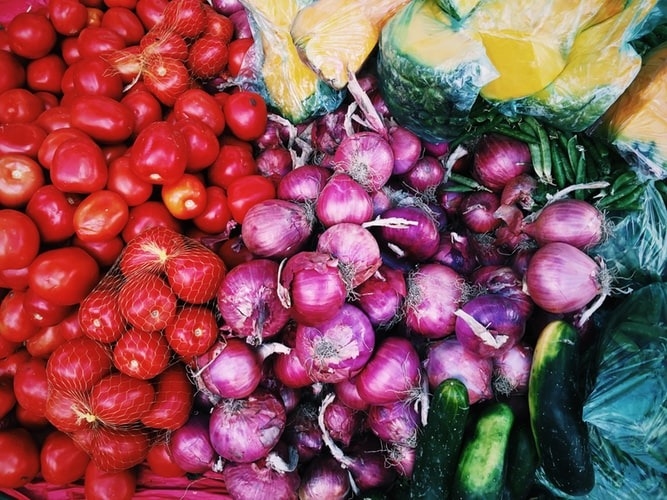
Veggie Wash: Does Washing Vegetables Remove Nutrients?
2 Mar 2020 | 4 min Read
Vidya Kanekar
Author | 27 Articles
Being a new mother is as tiring as it is rewarding. You are new to everything and have endless questions about one thing or the other. After all, you want to provide only the best for your child. It was all fine and dandy when all your baby needed was breast milk or formula. But now that they are older, you need to start preparing healthy and nutritious food.
Unless you go for completely organic produce – which is comparatively expensive, any veggies or fruits you purchase will be covered in a thin layer of pesticides and insect repellents. The harmful effects of pesticides in kids might lead to an increased risk of autism. Some chemical fertilizers can result in pesticide poisoning in expecting mothers are also linked to a higher rate of fertility issues. Apart from herbicides and pesticides, the food may also come in contact with particles of animal faeces – and you don’t want your child to eat that!
The best way to wash fruits and vegetables to get rid of toxic contaminants is to rub them under running water. Research suggests that a good hand scrub with water for at least thirty seconds can remove chemical fertilizers from raw veggies and fruits. But how can you be sure that you are not sloughing off all the nutrients from the vegetables?

Avoid washing fruits and veggies after they have been cut – this can lead to loss of vitamins and minerals. Vegetables like carrots, beets, potatoes, turnips and fruits like apples, pears and kiwis have essential nutrients in their skin. Peeling these fruits and veggies would result in the loss of healthy vitamins. In this case, a thorough scrubbing will suffice in ensuring food safety as well as nutrient retention. Another general practice involves washing the produce in room temperature water, as hot or cold water can also lead to significant nutrient loss.
But rinsing with water alone may not be enough to wash off certain viruses; you need to go a step ahead and ensure the safety of your children with a natural and toxin-free fruit and vegetable wash.
BabyChakra Fruit, Vegetable and Toy Wash
BabyChakra has manufactured an innovative washing solution that can be used to clean fruits, vegetables, and even toys. This natural fruit and veggie wash was specifically engineered to remove germs and bacteria from toys and other things kids get their hands on. BabyChakra’s Fruit, Vegetable and Toy Wash is baby-safe, pregnancy-safe, and FDA approved.
What Makes BabyChakra Unique?
BabyChakra’s wholesome and natural ingredients make it the first choice for parents everywhere. The Fruit, Vegetable and Toy Wash has a few features that make it stand out from similar products.
Natural – The fruit and vegetable cleaner is made out of all-natural and vegetarian ingredients which include aloe vera, mangoes, and lemon extracts.
Chemical-Free – The wash is manufactured without paraben, synthetic dyes, and all other common chemicals which are harmful to babies as well as pregnant women.
Hypoallergenic – The wash was manufactured to be free from all potential allergens and provide protection to a baby’s soft and sensitive skin.
Cruelty-Free – BabyChakra ensures that this organic fruit and vegetable cleaner is cruelty-free tests with no harm to any animals.
Takeaway
It is clear to see the benefits of choosing a natural and toxin-free fruit and vegetable wash. They remove all the pesticides and germs and leave behind healthy and tasty fruits and vegetables.
Get BabyChakra’s Fruit, Vegetable and Toy Wash, India’s 1st and only baby-safe fruit and vegetable disinfectant.
To View All Products Click Here
#carecomesfirst #babycare #kidshealth #momhealth #familyhealth
A


Related Topics for you
Suggestions offered by doctors on BabyChakra are of advisory nature i.e., for educational and informational purposes only. Content posted on, created for, or compiled by BabyChakra is not intended or designed to replace your doctor's independent judgment about any symptom, condition, or the appropriateness or risks of a procedure or treatment for a given person.

